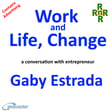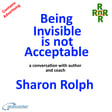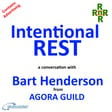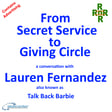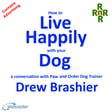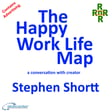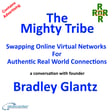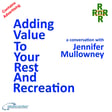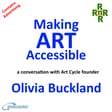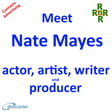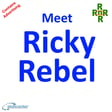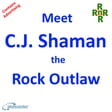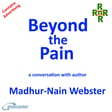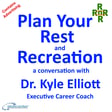
An Enthusiasm for Life – a conversation with Martin Pytela
Martin Pytela is the founder of Life Enthusiast, a manufacturer of natural health and well-being products.
Martin describes himself as a health engineer who promotes traditional medical and health care techniques.
In this episode of the Abeceder work life balance podcast Rest and Recreation Martin tells Michael Millward what inspired him to set-up a health-related company.
Martin describes how he manages his own health and well-being, and how making sure there is time every day, for activities away from work.
One of the activities that Martin is keen on is forest bathing. He explains what it feels like to engage with a forest of trees.
This episode of Rest and Recreation is ideal listening for anyone who is struggling to find time in their schedule for rest and recreation activities.
Visit Abeceder for more information about Martin Paytela and Michael Millward.
Audience Offers
Rest and Recreation is made on Zencastr, because creating podcasts on Zencastr is so easy, you can as well by visiting Zencastr and using our offer code ABECEDER.
Travel – at trade prices anywhere in the world at trade prices on flights, hotels, trains, and holidays as members of The Ultimate Travel Club.
Health – York Test provides an Annual Health Test. An experienced phlebotomist will complete a full blood draw at your home or workplace. Hospital standard tests covering 39 different health markers are carried out in a UKAS-accredited and CQC-compliant laboratory.
A Personal Wellness Hub gives access your easy-to-understand results and guidance to help you make effective lifestyle changes anytime via your secure, personal Wellness Hub account.
Visit York Test and use this discount code REST25.
Tech Problems? – Visit Three for information about business and personal telecom solutions from Three, and the special offers available when you quote our referral code WPFNUQHU.
If you have liked this episode of Rest and Recreation, please give it a like and download it. To make sure you do not miss future editions please subscribe.
Remember, the aim of all the podcasts produced by Abeceder is not to tell you what to think, but we do hope to make you think!
Being a Guest
If you would like to be a guest on Rest and Recreation, please contact Abeceder.
Matchmaker.fm introduce many guests to Rest and Recreation. Matchmaker.fm is where great hosts and even greater guests are matched, and fantastic podcasts are hatched. Use code MILW10 for a discount on membership.
We recommend that potential guests take one of the podcasting guest training programmes available from Work Place Learning Centre.
Thank you to you for listening.
We appreciate every like, download, and subscription.

